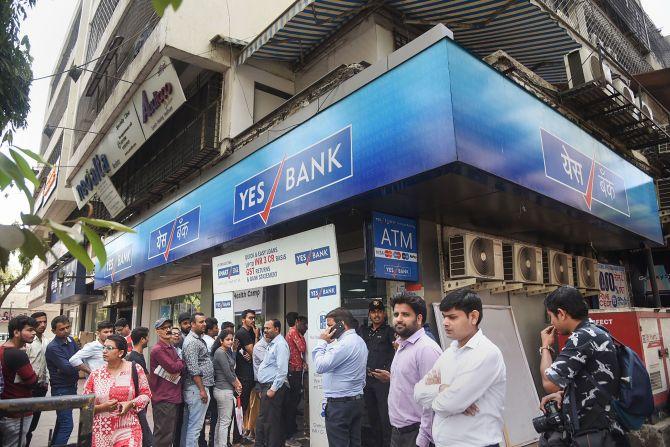Proceeds of the crime had been siphoned off and laundered or concealed, or layered and integrated into the main financial system through the acquisition of properties.
His wife Bindu Kapoor has been charged with being aware of the source of monies that were being routed through these companies.

YES Bank former managing director (MD) and chief executive officer (CEO) Ravneet Gill told the Enforcement Directorate (ED) that the bank had sanctioned huge amount of credit to many corporate that were facing significant stress and liquidity issues.
An ED chargesheet quoted Gill as saying that the private lender on March 31, 2019, had put out a credit watch list naming several large corporate/borrowers, including Reliance Group, Essel Group, Cox & Kings, Dewan Housing Finance, Omkar group, Radius Developer and others.
“In this watch list, the bank took a contingency provision of Rs 2,000 crore as a measure of prudent accounting and transparency,” said the ED chargesheet.
The chargesheet also contained statements made by other bank executives, alleging that co-founder Rana Kapoor had overruled objections by risk teams while extending loans to realty companies – RKW Developers and Belief Realtor – owned by DHFL promoters.
“It was classified as a red-flagged account in November 2019, on the ground of non-commensurate progress in the project vis-a-vis the amount disbursed.
"Of the total sanctioned loan of Rs 1,700 crore, Rs 750 crore was disbursed on the same day of sanction,” according to a senior executive’s statement cited by ED.
The official said the bank had to cancel the additional loan of Rs 950 crore after the Reserve Bank of India (RBI) started special audit of the account.
The special court of Prevention of Money Laundering Act (PMLA) has taken cognizance of the first chargesheet filed on Friday in connection with money laundering charges against Kapoor, his family members and their three companies.
“This is a complex case of financial frauds and there are many interlinked transactions and entities.
"These transactions have by design been conducted in a convoluted manner.
"Therefore, there are various indirect co-relations and suspected quid pro quo that will come in light only after thorough investigation," ED said.
It further said that Kapoor and family were “controllers of financial institutions that are among the biggest in India and therefore enjoy immense clout and influence.
"Therefore, they are capable of designing very complex structure to hide their impropriety,” the ED said.
According to the ED, the huge scam was brewing for many years during the tenure of Kapoor.
It is evident that the accused person knowingly indulged in these criminal activities and its consequent generation of proceeds of crime.
The end beneficiaries of these transactions were Kapoor and his family members, along with associates, the report noted.
ED explained how Kapoor misused his official position to gain undue financial benefit for him and his family.
The proceeds of the crime generated in this case travelled to main holding companies, including Morgan Credit, YES Capital and also to its subsidiaries Doit Ventures and RAB Enterprises.
The entire proceeds is Rs 5050 crore, it said.
ED charged Kapoor for layering and parking kickbacks received in exchange of sanctioning of loans and alleged that he was the controlling authority and decision maker during the material period when the fraud was perpetrated.
Proceeds of the crime had been siphoned off and laundered or concealed, or layered and integrated into the main financial system through the acquisition of properties.
His wife Bindu Kapoor has been charged with being aware of the source of monies that were being routed through these companies.
“She was hand in glove with her husband, using the account of these companies and helping siphon off multiple accounts of other 100-plus subsidiaries and utilising and projecting them untainted.
"She was an abetter of the crime, thereby being actually involved in laundering", the report said.
Gill, too, had talked about several inherent risks with the DHFL-promoted projects, which were at a nascent stage.
They required approvals from various authorities for higher floor space index and also from slum dwellers for rehabilitation.
The standard process stipulated by the bank for valuation was waived and no end-use certificate was sought from the borrower.
Besides, there was a large upfront expenditure with proportionately high debt financing.
The large portion of internal approvals would be realised towards the latter stage of the project.
On the RBI moratorium, Gill said the core equity tier quarter (CET1) of the bank started to sink and stood at 8.7 per cent as on September 30, 2019.
It was low compared to peer banks, given that the bank had to set aside capital for growing provisioning.
He said the bank and the regulator were concerned that when the December quarter earnings were disclosed – and given that no fresh capital was in place – it could result in large deposit outflow and impair the bank’s future viability.
Photograph: PTI Photo












 © 2025
© 2025